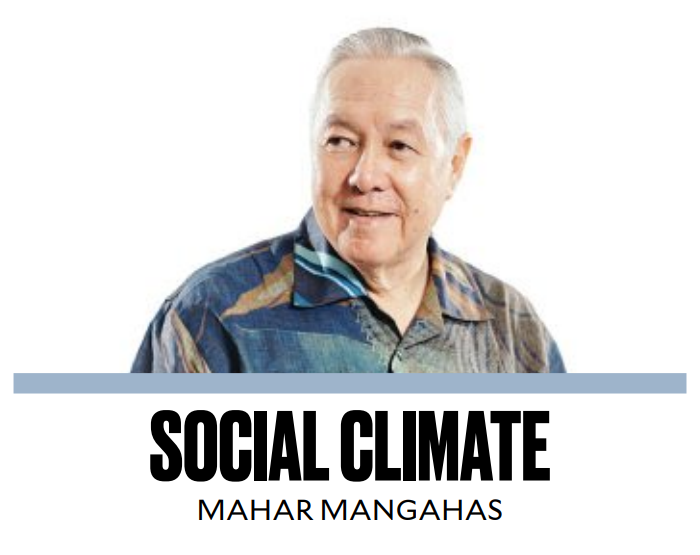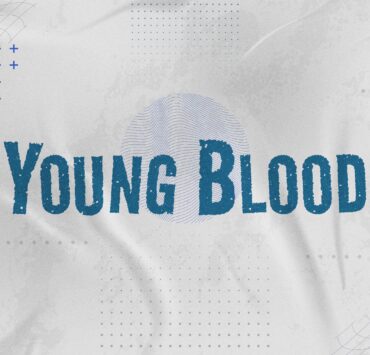Multiple and variable opinions

Beliefs, values, attitudes and opinions can all be examined by surveys. Conceptually, they differ in the strengths with which they are held—the strongest or most firmly held being beliefs and the weakest or most liable to change being opinions. At any time, all these vary from society to society; in any society, each of these varies from person to person.
Over time, any of these might change, with changes in stronger feelings likely to cascade to weaker ones, especially to opinions. My personal rule is to await newer scientific data before concluding that opinions have changed.
As of now, how do Filipinos in general feel about former president Rodrigo Duterte, who presently awaits trial at the International Criminal Court? Though newly elected as returning mayor of Davao City, that city is not all of Mindanao, much less all of the Philippines. For the whole country, I assume that feelings are still unfavorable towards him, as seen in four SWS surveys in 2023 and 2024 (see “Public opinion supports the ICC,” 3/15/25), until new data show otherwise.
How do Filipinos in general feel about Vice President Sara Duterte, who presently awaits trial at the Senate on certain charges for which she was impeached by the House of Representatives last February? The report, “SWS confirms May 2025 Survey for Stratbase Consultancy on people’s post-election expectations of the Senate, House of Representatives, selected national issues, and Vice President Sara Duterte” (www.sws.org.ph, 5/29/25), tell us that 88 percent of Filipinos say she should address the impeachment charges, answer all allegations pertaining to corruption, and clear her name, and only 7 percent say she should not.
I don’t see why the delay—whatever the cause—in starting the impeachment trial should imply that most Filipinos are no longer interested in VP Sara’s facing the charges. I like the rule for NBA referees that the call on the floor may not be reversed unless the slo-mo replays show clear and convincing evidence of error.
A politician’s popularity—either in general or in some respects—cannot be evidence of her/his innocence of a certain crime. Much less can the likability of the politician’s party or coalition be evidence of her/his innocence. I remember opinion polls showing, for the same respondents, (a) disapproval of electing a womanizer to public office, (b) awareness of Joseph “Erap” Estrada being a womanizer, and (c) intentions to vote for Erap as president.
Filipinos in general did not believe in the “nanlaban” excuse for the killing of suspects by police in the time of “Tokhang,” when Ronald “Bato” dela Rosa headed the Philippine National Police. Yet the PNP chief was elected as senator in 2019, and has just been reelected. I conclude that Filipinos have multiple feelings about him, including some favorable enough to warrant their vote.
For an individual, having multiple opinions about a politician is neither unusual nor abnormal. It’s just human, and so is changing one’s opinion. I don’t see why the results of the last senatorial election, in which she was not a candidate, should be seen as changes in attitudes towards the impeachment of VP Sara. The charges are serious; the people feel she should face them; and now they are anxious for the trial to start so that they can see the evidence for themselves.
What matters is for the conduct of the forthcoming impeachment trial to be acceptable to the people. Let’s recall the impeachment trial of then President Joseph Estrada, which began on Dec. 7, 2000, and ended on Jan. 16, 2001, when the prosecutors withdrew from the trial. At that time, my “Social Climate” columns were in another newspaper, including the last one, “The people were accepting the trial, until…” (1/22/2001), where I wrote:
“The most important finding of the ABS-CBN/SWS national survey of Jan. 6-9, 2001 was that the majority of 58 percent agreed that the Senate’s final decision in the impeachment trial should be accepted, whether conviction or acquittal. (Note: disagreement was 14 percent, making net agreement a strong +44 = 58 – 14.)
“However, the announcement of this finding, scheduled for the morning of last Wednesday the 17th, was abruptly canceled just the night before, after the shocking and fateful 11-10 Senate vote not to open the now-notorious second envelope, which obviously had the capacity to trigger a radical change in opinions.
“Among the many findings of the survey, this high acceptability of the trial process was, we felt, the most critical because it was one of the rare points on which the highly polarized public—33 percent for conviction, 27 percent for acquittal, and 39 percent still undecided—agreed.” … (Here, I mentioned that agreement to accept any verdict was 62 percent among those favoring conviction, 61 percent among those favoring acquittal, and 54 percent among those with no preferred verdict.)
“Thus the consensus to accept any verdict was very strong. This was similar to the top finding of the earlier ABS-CBN/SWS poll of Dec. 8-11, which became even stronger as of Jan. 6-9, that the universal public demand was for the President to testify personally at the trial.”
Dr Mahar Mangahas is a multi-awarded scholar for his pioneering work in public opinion research in the Philippines and in South East Asia. He founded the now familiar entity, “Social Weather Stations” (SWS) which has been doing public opinion research since 1985 and which has become increasingly influential, nay indispensable, in the conduct of Philippine political life and policy. SWS has been serving the country and policymakers as an independent and timely source of pertinent and credible data on Philippine economic, social and political landscape.





















